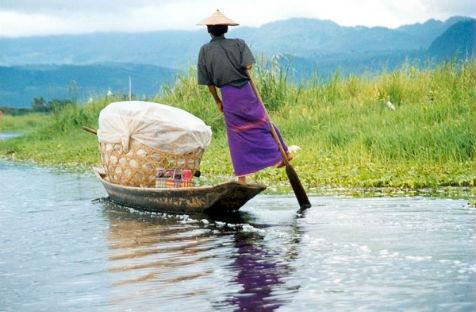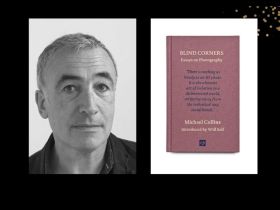You often hear travel writers at festivals say there are no new places in the world to travel, nothing left to discover. But Chinese writer and intellectual Xu Zhiyuan makes it clear there is a great deal to learn about travelling in new and different ways and some very different books to be written.
Xu told the Australian Festival of Travel Writing that guidebooks like Lonely Planet give such a clear and precise map that they can make travel too restrictive and safe. He referred to the views of Albert Camus that insecurity was at the heart of the travel experience.
‘What gives value to travel is fear. It is the fact that, at a certain moment, when we are so far from our own country we are seized by a vague fear, and an instinctive desire to go back to the protection of old habits. This is the most obvious benefit of travel. At that moment we are feverish but also porous, so that the slightest touch makes us quiver to the depths of our being. We come across a cascade of light, and there is eternity. This is why we should not say that we travel for pleasure,’ Camus wrote in his notebooks.
The genius stroke of the recent Festival held at Melbourne University, was inviting Xu talk about his recent foray into travel writing. Xu is editor in chief of the Chinese edition of the Business Weekly, writes columns for Yazhou Zookan and the British Financial Times and is co founder of One Way Street Library, a bookshop and literary venue in Beijing. Born in 1976 at the end of the Cultural Revolution, he joked that his generation has nothing dramatic to write about. This hasn’t stopped him publishing eleven books and gaining iconic status in China for his “firm critical stance, profound cultural background and idiosyncratic writing style.”
In his travels inside and outside China, Xu said he was interested in exploring the stories of Chinese people living on the margins. Travelling from north to south China, he lamented that the diversity of cultures is fast disappearing in a desire for national globalism.
On a trip to Mandalay in Burma where Chinese signage was banned, he noted that as China’s economic power and confidence grows, ordinary Chinese living in the Diaspora still suffer discrimination.He described the inner struggle of Chinese travellers (not those in large tour groups), who learn about their own country from the outside, and the dilemma he faces as a journalist, marrying the lack of dialogue within China, with the plethora of opinion without.
The Australian Festival of Travel Writing was held in Melbourne from 22-24 March. There was a small crowd, no queues for sessions and it was only $25 per day for a festival pass. The festival included panels, discussions, debates and conversations all with the notion of travel at their centre. Non fiction, fiction, blogs, feature writing, voluntourism, travel writing tips, eco travel, ethical travel, gourmand travel, the future of travel – were some of the topics on the program. The French wine writer, Oliver Magny charmed the audience with his tales of the French wine trail; Sue Gough Henly, Craig Tansley, Justin Jamieson,and Natasha von Geldern gave solid tips on ‘What it Takes to Become A Travel Writer’, while Rob McFarland added practical icing to the cake with his ‘Ten Tips For Aspiring Travel Writers’
The topic of the world’s hottest travel destination, Burma, was examined in depth by Burmese-born Michelle Aung Thin, author of Monsoon Bride; Brett Melzzer (Balloons Over Bagan), the managing director of Mr and Mrs Smith Asia Pacific Simon Westcott and Lonely Planet’s Tony Wheeler.
It was fitting that the final presentation before the last debate was given by Tony Wheeler, the godfather of travel writing and co-founder of Lonely Planet. With graphic slides and stories, he talked about his latest books: Badlands and Darklands – stories of travels into ‘rogue’ countries with ‘bad’ reputations such as Afghanistan, Albania, Cuba, Iran, Iraq, Libya, North Korea and more.
The future of Lonely Planet is unknown now the travel Leviathan has been sold by BBC to US media group NC2. But Xu Zhiyuan reminded us there are other ways to write travel.





